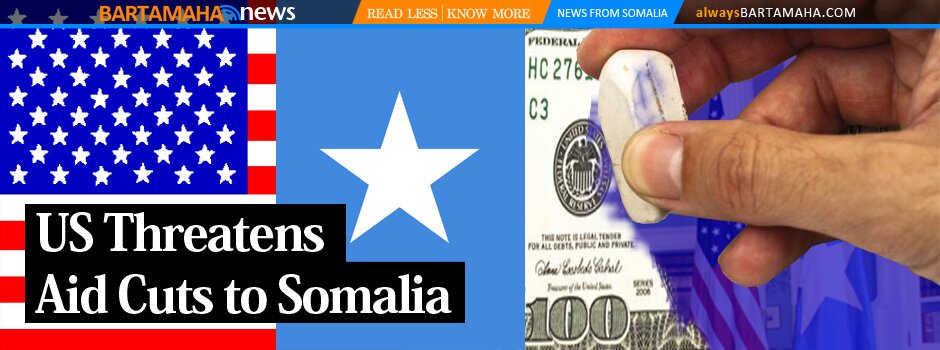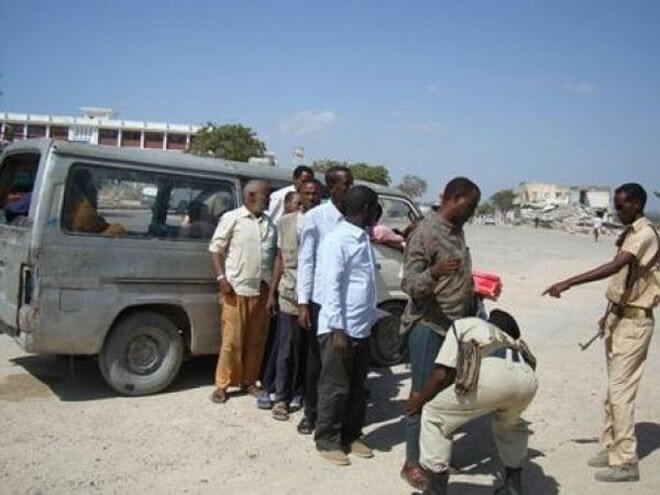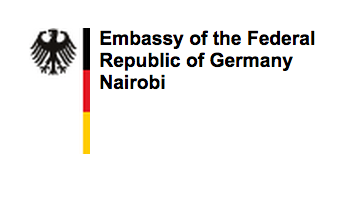Diplomatic Agenda: Somalia still tense despite global goodwill
 By HENRY OWOUR (Daily Nation Kenya) — Attempts to end the conflict in Somalia is gaining international support with the recent pledge of $213.3 million (Sh16.8 billion) at a conference in Brussels.
By HENRY OWOUR (Daily Nation Kenya) — Attempts to end the conflict in Somalia is gaining international support with the recent pledge of $213.3 million (Sh16.8 billion) at a conference in Brussels.
The latest move came after the new Somalia President, Sheikh Sharif Ahmed, received a very warm welcome at an African Union summit in Addis Ababa.
Days before his arrival in Addis, Sheikh Sharif could not imagine he would be welcome in the capital of the state whose troops he fled in 2006.
But, one would have assumed that having been the leader of the Islamic Courts Union that once led Somalia, Sheikh Sharif would be adored and that the radical Al-Shabaab would dare not harm him as they tried on many occasions against the more secular Abdullahi Yusuf Ahmed, who resigned in December.
Sheikh Sharif actually came close to death on Tuesday when an SU-23 missile was fired at his plane as it approached Mogadishu after a stopover in Nairobi on his way from the Brussels conference.
The SU-23 is an anti-aircraft gun made in the former Soviet Union. It is a deadly weapon that can knock down any aircraft. It was the type of the weapons loaded on MV Faina that was freed by Somali pirates in March.
Sheikh Sharif was lucky. His aides say the artillery came too close but did not find its target, as the weapon needs good aiming.
Radical elements
Already, even before the attack, the African Mission in Somalia (Amisom) was receiving calls from the radical Al-Shabaab group that they should leave Somalia. Sheikh Dahir Aweys, who has a big following among radical elements has declared that he will never have talks with Sheikh Sharif’s Transitional Federal Government (TFG) before Amisom troops quit the country.
But Amisom has only 4,300 soldiers out of the targeted 8,000. The force that is only staffed by Uganda and Burundi cannot be judged as a failure as it is yet to achieve its targeted number.
Among countries that have pledged troops to Somalia are Nigeria, Malawi and Ghana.
Nigeria and Malawi, in particular, have been putting off deployment of troops for a long time. Nigeria repeated their troop pledge in Brussels last week.
At the meeting, Kenya, Egypt and France pledged to avail their facilities for training Somali personnel.
The goodwill at the summit was major. Among the big donors were Japan’s $9 million, Italy gave $5 million while Spain contributed $7 million. Other contributors were Britain ($14 million), US ($50 million) and the European Union ($94 million). Malta, as small as it is, pledged $10,000.
But, at the same time, Somali groups are yet to extend a hand of friendship to each other. As a sign of the tension, Sheikh Aweys told a rally in Mogadishu: “I do not recognise the government [of President Sheikh Sharif] because it is not a sovereign government and it is commanded by foreign powers.â€
The irony is that Sheikh Aweys and Sheikh Sharif were once in the same government as part of the Islamic Courts Union. At the same time, there is a moderate group known as Ahlu Sunna Waljamaa that has Ethiopian links and which is out to destroy the radical Al-Shabaab, mainly in South Central Somalia. On its part, Al-Shabaab is supported by Eritrea.
One would expect that Sharif’s government would seek the support of Ahlu Sunna in battling Al-Shabaab, but the truth is that Sheikh Sharif fears that Ahlu Sunna may become too powerful and turn against his government.
There is also the Hizbul Islam, which is a merger of four radical groups, but less radical than Al-Shabaab.
Al-Shabaab has demanded the immediate withdrawal of AU peacekeepers from Somalia but the AU special envoy, Mr Nicholas Bwakira, has stated that the force is in Somalia at the invitation of the government and won’t leave unless told to do so by the government.
President Sharif himself says the withdrawal of Amisom must be preceded by reconciliation.
Military courts
But, the signs are that very soon, Sheikh Aweys will start setting up military courts in Mogadishu. At that point, President Sharif will have to show who calls the shots and to do that, he needs international support.
It is time therefore for Nigeria, Ghana and Malawi to keep their pledge and send troops to Somalia and, Amisom needs to receive funds pledged for its use directly and not through the AU headquarters in Addis Ababa as much of it is getting eaten up in the system.
Owuor is the Nation’s Diplomatic and Foreign Affairs Writer
Comments
comments
 Calendar
Calendar






































